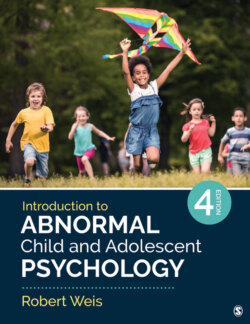Читать книгу Introduction to Abnormal Child and Adolescent Psychology - Robert Weis - Страница 182
На сайте Литреса книга снята с продажи.
Examples of Cultural Adaptations
ОглавлениеThe Chicago Parent Program is an example of a culturally adapted treatment designed for ethnic minority, low-income families with oppositional and defiant children. It is based on a behavior therapy program for parents. The original program teaches parents to reinforce appropriate child behaviors, such as attention and compliance, and to manage children’s behavior problems in a consistent manner. In each session, parents watch videotaped vignettes of caregivers demonstrating parenting techniques. Parents identify and discuss effective child-rearing strategies and provide support to each other as they attempt to implement these techniques with their own children during the week. The original program was highly effective for middle-SES White families but much less effective for ethnic minority, low-income families (Gross et al., 2015).
Researchers adapted the program to meet the needs of low-income African American and Latino parents living in urban settings. After researchers consulted with parents, they modified the skills taught in the program to make them more accessible and relevant to parents in their community. For example, they focused on skills that emphasized compliance and child safety—skills important to families living in a busy city. They also reframed the lessons about the use of physical discipline (e.g., spanking), which many ethnic minority parents viewed as culturally appropriate and important to childrearing. The researchers created new videotaped vignettes, with African American and Latino parents in more culturally relevant settings. One video demonstrated how to manage child misbehavior at a laundromat; another video addressed handling multigenerational parenting conflicts. An evaluation of the program showed that it had lasting effects on parents’ and children’s behavior. More than 90% of parents reported feeling very satisfied with their participation and 88% said they would highly recommend it to a friend (van Mourik, Crone, de Wolff, & Reis, 2018).
Review
The APA has developed guidelines to help clinicians adapt treatment to meet the needs of children and families from multicultural backgrounds. At the heart of these guidelines is the notion that a child’s identity is influenced by multiple ecological systems.
Psychologists use the term intersectionality to describe the way social–cultural factors interact to shape children’s identity and either promote or hinder their development.
Culturally adapted treatment involves tailoring evidence-based therapies to fit family’s social–cultural backgrounds, expectations, needs, and strengths.
